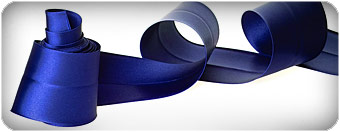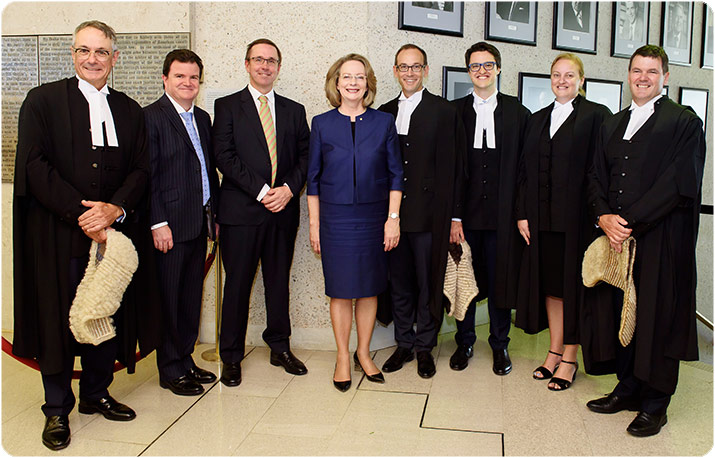- Regional Bar
- Bar on the Goldie
- Reviews and the Arts
- Art - Under a Modern Sun: Art in Queensland 1930s-1950s - QAGOMA
- Book - The Flower Bed
- Book - Vaccine Nation
- Book - Unsettled
- Book - The Power of Choice
- Book - The Best Australian Science Writing 2024
- Book - Would that be Funny?
- Travelogue - Annecy (French Alps)
- Book - Journey to Kars: A Modern Traveller in the Ottoman Lands
- Book - Mrs Death Misses Death
- Professional Conduct and Practice
- Cyber Security Critical for Small Business
- SA Barristers’ Chambers Listed on Ransomware Leak Site
- Should you Delete your Old Social and Email Accounts?
- Threats to Judges on the Rise
- Indemnity Costs Ordered in Matrimonial Proceedings Following Material Non-Disclosure
- Bipartisan Submissions in a Criminal Trial Infected with Hallucinating AI - Twice
- Solicitor to Pay Costs for Submissions Affected by the Use of AI
- Appellate Approval of Queensland Barrister being Refused Practising Certificate
- Use of AI in Litigation Carries Responsibilities
- Lawyers Ought be Cautious in Legal Social Media Commentary
- Advocacy
- Evidence as to 'Usual Practice'
- Subpoena Lay Witnesses!
- Knowledge, Belief or Intent: The Difficulties of Particularising a Fraud
- When is Conduct Unconscionable?
- Costs Order Against Non-Party Overturned
- Scope of Non-Party Disclosure: ‘Spear Fishing’ not ‘Drag Netting’!
- Variation of a Contract
- Copyright: Crown use Just Became a Little Wider
- Need for Comprehensive Affidavit in Setting Aside Corporations Act Statutory Demand
- Damages for Remedial Expenditure Actionable by Non-Owner Developer Against Negligent Designer
- Inter Alia
- How Resilient Are You? 4-Question Test and Proven Strategies
- The Independent Bar as a Feudal Guild
- Your Guide to Avoiding the 3pm Slump at Work
- Expressions of Interest to Write in 'Queensland Civil Practice'
- Fixed vs Variable Rate?
- Language - Dyed-in-the-wool
- Language - Formidable
- Language - Lays the Ghost
- Language - Scintilla
- Language - Zeitgeist
- From the President
- From the President
- From the Editors
- From the Editors
- Articles
- How Brawn v The King and MDP v The King Changed the Law on the Common Form Appeal Provisions
- 10 Minutes with…Simon Couper KC
- Thought for this Issue: The Performance Pressure of Being a Barrister…Look After Yourself in How You Manage that...Pressure
- Featured Artist Profile: William Robinson
- The Closing Address in a Jury Trial
- Obligations of New Barristers…and the Other Side of Life
- Swearing-In Ceremony for Justice Doyle and Justice Johnstone
- Hearsay Celebrates 100 Issues
- VALE: Stephen William Zillman 1953-2025
- The AML/CTF Legislation: Using Red Tape to Fight Crime
- Reviews and the Arts
- Book - The Kowloon Kid: A Hong Kong Childhood
- Book - Annotated Civil Liability Legislation Queensland 6th Edition (2025)
- Book - Kataraina
- Book - Travelling to Tomorrow: The Modern Women Who Sparked Australia’s Romance with America
- Book - Critical Care: Nurses on the Frontline of Australia’s AIDS Crisis
- Book - The Long Shadow: Australia’s Vietnam Veterans since the War
- Book - The Law of Affidavits, Second Edition
- Travelogue - RHS Chelsea Flower Show (UK)
- Exhibition - ‘Bluey’s World’
- Music - Bon Iver ‘From’ (2025)
- Words from the Past
- Judging Truth from Memory (2023)
- Between the Devil and the Deep Blue Sea - the Bar as ‘Quality Controller’ (2012)
- Making and Responding to Objections to Evidence - Lay Testimony Evidence (2009)
- The Judicial Method: Essentials and Inessentials (2009)
- Aspects of Cross-Examination on Documents (2006)
- Professional Conduct and Practice
- Junior Lawyer Pivot Points
- Referral made after ‘Fake’ Cases Discovered in Barrister’s Submissions
- Barristers Posting Homophobic Notices in Lifts of Chambers’ Building Found Guilty of Professional Misconduct
- Solemnity of Solicitor’s Undertaking
- Unrepresented Litigant Gains Re-trial for Want of Assistance by Judge in Trial Conduct
- Counsel Sanctioned for Intimidatory Conduct to Opposing Client and Misrepresenting His Status
- Harnessing Generative AI in 2025 with LexisNexis
- Advocates’ Immunity Protects Counsel from Alleged Negligence in Failing to Elicit Obtainable Evidence
- Allegations Against Counsel Dismissed as Abuse of Process by SA Supreme Court
- Removal of Lawyer from Roll of Practitioners - Primary and Shifting Onuses
- Advocacy
- Trial Advocacy: Planning and Environment Court
- FCAFC: How to Draw and Conduct an Appeal
- A Lesson from History: A Litigation Strategy Based on a Single Battle
- Knowledge, Belief or Intent: The Difficulties of Particularising a Fraud
- Federal Court - Revisiting the Requirements of Pleadings
- Significant Changes have been Recommended to Modernise Wills Law in England and Wales
- No Tortious Duty Owed by Defendant in Respect of 1960’s Report of Abuse of Another Child
- Entitlement of Trust Beneficiary to Inspect Trust Documents and Receive Trust Information
- When to Assess Damages for Breach of Contract
- Liability of International Air Carriers
- Inter Alia
- Congratulations Bar Practice Course 83
- Ceremonial Sitting of the Full Court to Welcome the Honourable Justice Amelia Wheatley
- Ceremonial Sitting of the Full Court to Welcome the Honourable Justice Erin Longbottom
- No Place to Stay: Climate Displacement and the Limits of Law
- The Jurisprudential Labours of Hercules
- The Opening of the First Parliament of the Commonwealth of Australia
- Travels in Sindh – A Glimpse into the Legal System of Pakistan, Karachi, and the Vibe
- UKSC Finds ‘Woman’ in ‘Equality’ Statute Means ‘Biological Woman’
- Essential Finance Tips Barristers Should Know
- Language - Quixotic
- From the President
- From the President
- From the Editors
- From the Editors
- Articles
- The Communist Party Case, the Role of the Advocate and the Rule of Law
- 10 Minutes with…The Honourable Hugh Fraser KC
- Thought for this Issue: Counsel brings their Learning, Ability, Character and Firmness of Mind to the Conduct of Causes
- Featured Artist Profile: Ralph Wilson
- Ethics as Advocacy
- Commercial Litigation: Drawing upon History to Embrace the Future
- A Sunset Soirée for the Brain in Honour of Justice Peter Hilton
- Some Aspects of Judicial Restraint in Civil Appeals
- After Mallonland: Testing for a Duty of Care Against Purely Economic Loss
- What is Missing from Modern Legal Education?
- Issue 99: March 2025
- From the President
- From the Editors
- Cross-Examination – Planning, Purpose and When to Stop!
- 10 Minutes with... Amanda O’Brien, Principal Registrar QSC, QDC and QLC
- Thought for this Issue: The Task of Advocacy is About Making it Simple
- Featured Artist Profile - Emma Coulter
- What is an Executive Order?
- John Jay – First Chief Justice of the United States of America
- Admissibility of Common Forms of Documentary Evidence
- VALE: The Honourable Alan George Demack AO 1934-2025
- Issue 98: December 2024
- From the President
- From the Editor
- 'Sam and Ralph' - The Role and Practice of Counsel in the System of Justice
- Advocacy in Mediation
- 10 Minutes with…the Honourable Ian Callinan AC
- Barrister Cyber Risk
- VALE: Grant Thomas Britton KC 1946-2024
- An Interesting Approach to Settlement
- Navigating the AI Abyss: Ethical Challenges in the Age of GENAI
- Danny Gore KC: 50 Years at the Queensland Bar
- Issue 97: September 2024
- From the President
- From the Editor
- Jury Misconduct - What Exactly Are They Getting Up To?
- AI and Mediation
- 10 Minutes with…the Honourable Philip Morrison KC
- Maintaining your Selfcare During Trial
- ‘A Diet of the Most Awful Things Humans can do’ – A Criminal Lawyers’ Life
- Appearing in the High Court: Metal Manufactures Pty Ltd v Morton (2023) 275 CLR 100
- ‘Goodnight and Good Luck!’ – A Tribute to Retiring Counsel
- Crypto (& other) Bros – Navigating Storms in the Scammers’ Paradise
- Issue 96: June 2024
- From the President
- From the Editor
- Get Out There!
- 10 Minutes with...QLRC Chair Fleur Kingham
- The Honourable Bruce McPherson CBE Memorial Lecture 2024
- Fast and Slow Thinking by Judges and other Human Beings
- Better Targeted Superannuation Concessions or Targeting Judicial Independence?
- Seven Random Points about Judging
- Evidence in Chief in Criminal Trials
- The Operation of the International Criminal Court
- Issue 95: March 2024
- From the President
- From the Editor
- Generative AI and the Bar - A Long Way from the Horse and Cart but still a Fair Way to Travel!
- 10 Minutes with...ChatGPT
- Wrong Side of the Law: What Raised Judges’ Ire in 2023
- Is the Civil Trial System Past its Use-by Date?
- Lessons from the UK’s Post Office Scandal
- Is a US President Immune from Criminal Acts?
- Magistrate Wickham at Moreton Bay – Master of all he Surveyed
- Insolvent Corporate Trustees: Just More Questions
- Issue 94: Dec 2023
- From the President
- From the Editor
- Retirement of the Hon Susan Kiefel AC KC as Chief Justice of the High Court of Australia
- The Honourable David Francis Jackson AM KC
- US Supreme Court Adopts Judicial Code of Conduct
- Judicial Bullying: The Last of the Legal Bloodsports?
- 10 Minutes with...the Honourable George Brandis KC
- Can Stoic Virtues Help Modern Lawyers Meet their Ethical Obligations?
- Vale: Sandra Day O’Connor (1930-2023)
- Social Media and Defamation Law
- Issue 93: Sep 2023
- eBrief Ready
- Sherrin Partners
- LexisNexis
- Put Paper in the Past
- Bar Flies Scoop the QLS Netball Pool
- Gremlins, Borgs, and Judicial Impartiality in Multi-Member Courts
- The Legacy of Sir Harry Gibbs on the Jurisprudence of Purely Economic Loss
- Therapeutic Jurisprudence and Mediation: Partners in Dispute Resolution
- Qld Law Reform Commission – a New Look
- A Way to Win-Win Negotiation
- Issue 92: Jun 2023
- LexisNexis
- Mazars
- Morgans
- Some Important Changes in the New Property Law Bill
- Class Actions 101
- The QCA and the Law as to Overturning an Unreasonable Verdict
- Not Bound by the Rules of Evidence
- Family Law – Same but Different
- When Ministerial Decisions Must Be Made Personally
- Insolvency – ‘Peak Indebtedness’
- Issue 91: Mar 2023
- LexisNexis
- Morgans
- Mazars
- Winners are Grinners; Well Almost!
- Bar v UQ Students Netball Match – 5 March 2023
- Wigs and Gowns
- CIA 1944 Tips for Organisational Sabotage – Sound Familiar in Modern Mores?
- Family Court Judge Writes to Children Concerning Custody Decision – “I have told your parents to stop the crap”
- Magic Circle Firm Rolls Out 'Gamechanger' ChatGPT-Type Platform
- Privacy – Prospective Statutory Right of Action and Statutory Tort
- Issue 90: Dec 2022
- Morgans
- Vincents
- Mazars
- True to the Land: A History of Food in Australia
- Podcast Review: What Makes a Good Mediator?
- Podcast Review: Barristers in the New Normal
- Darwin Spitfires Anniversary Edition: The Real Battle for Australia
- Speaking Notes for Executing Justice
- Zines and Stellios’s The High Court and the Constitution (7th ed)
- The History Thieves




 Courtesy of idphoto.com.au
Courtesy of idphoto.com.au